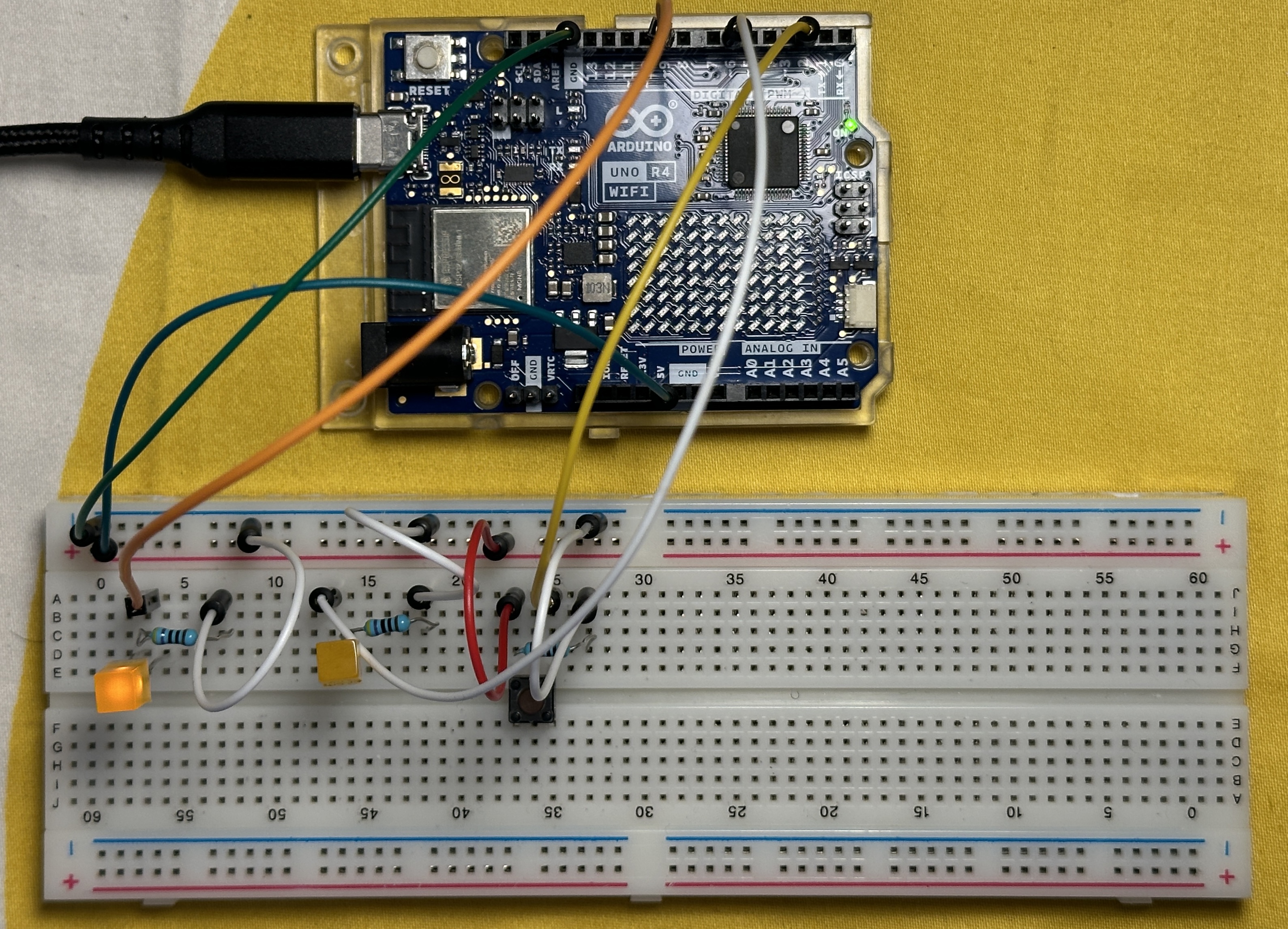The Assignment
- Instructions ————————————————————————
Circuit
Connect two LEDs to your Arduino using a breadboard
Connect one switch to your Arduino using a breadboard
Code
1 Read a momentary switch being pressed
2 When the program starts, both LEDs are off
3 When the switch is pressed once, the first LED turns on
4 When the switch is pressed the second time, the second LED turns on (the first one should also still be on)
5 When the switch is pressed the third time, both LEDs turn off
6 Repeat this same cycle of LEDs turning on and off in sequence (off, one LED, two LEDs, off…)
- Circuit ———————————————————————————

- Code ———————————————————————————–

int led1PIN=9;
int led2PIN=6;
int btnPIN=2;
int count=0;
int btnVal=0;
int pre_btnVal=0;
void setup() {
pinMode(led1PIN,OUTPUT);
pinMode(led2PIN,OUTPUT);
pinMode(btnPIN,INPUT);
Serial.begin(9600);
}
void loop() {
// put your main code here:
btnVal = digitalRead(btnPIN);
if(btnVal != pre_btnVal){
// when the btn is clicked
\ if (btnVal == HIGH){
\ count++; //count=count+1
\ Serial.print("Count:");
\ Serial.println(count);
\ delay(50);
\ //if push the btn, LED1 is on
\ if (btnVal == HIGH && count==1){
\ digitalWrite(led1PIN, HIGH);
\ digitalWrite(led2PIN, LOW);
\ delay(50);
\ //if you push the btn, LED2 is on (LED1 is still on)
\ } else if (btnVal == HIGH && count==2) {
\ digitalWrite(led1PIN, HIGH);
\ digitalWrite(led2PIN, HIGH);
\ delay(50);
\ //if you push the btn, both LEDs turn off
\ } else if (btnVal == HIGH && count==3) {
\ digitalWrite(led1PIN, LOW);
\ digitalWrite(led2PIN, LOW);
\ delay(50);
\ }
}
if(count > 3){
\ pre_btnVal = 0;
\ btnVal = 0;
\ count = 0;
// save the previous button state for the next loop
\ }else{
\ pre_btnVal = btnVal;
\ }
\ delay(50);
}
}
- Thoughts/Reflections ——————————————————————
I struggled with how to light up the LED. There were two options: looping using “count” command, or coding in order based on the LED’s HIGH/LOW information. In the end, I chose the former, referring to the link below.
Digital Input: Falling or Rising Edge : https://learn.newmedia.dog/tutorials/arduino-and-electronics/arduino/digital-io-rising-or-falling-edge/
It is helpful for me and easy to understand how to code. When I was coding and the LED wasn’t working properly (the code didn’t seem to be wrong), that was because the LED wasn’t physically inserted properly. It took me a while to realize that was a simple problem…